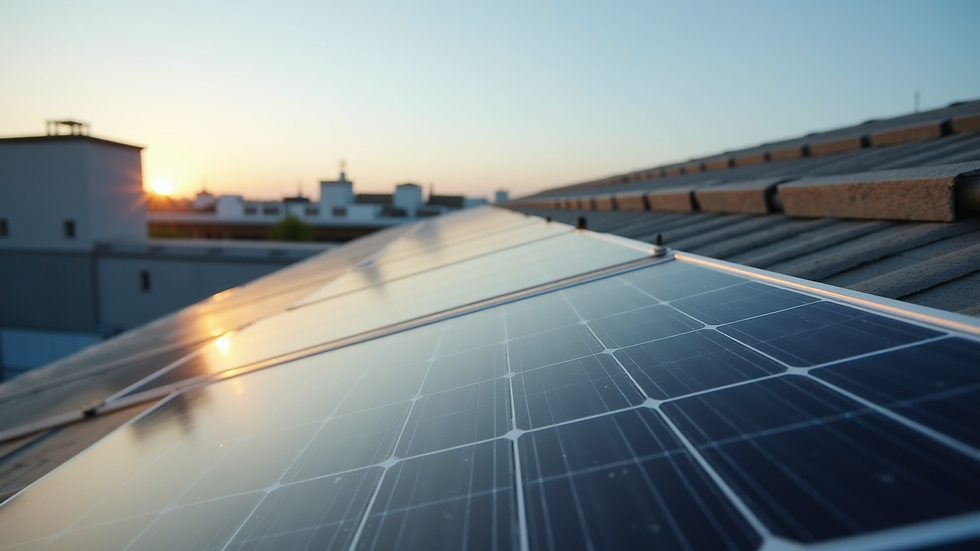Why Every Decision Should Consider Future Generations
- Anna Hutchison
- Oct 13
- 3 min read
In today’s fast-paced world, decisions are often made with immediate benefits in mind. However, the true impact of our choices extends far beyond the present moment. Every decision we make today shapes the world that future generations will inherit. This is why future-focused decision making is not just a noble ideal but a necessary approach for sustainable progress and well-being.

Understanding Future-Focused Decision Making
Future-focused decision making means considering the long-term effects of our actions on the environment, society, and economy. It involves looking beyond short-term gains and thinking about how our choices will affect people decades or even centuries from now.
For example, when a city plans its infrastructure, future-focused decision making would encourage investing in renewable energy, sustainable transport, and green spaces. This approach ensures that the city remains livable and vibrant for future residents, not just current ones.
Key elements of future-focused decision making include:
Sustainability: Prioritising resources that can be replenished or maintained over time.
Equity: Ensuring fair access to opportunities and resources for all generations.
Resilience: Building systems that can adapt to changing conditions and challenges.
Responsibility: Acknowledging the impact of today’s decisions on tomorrow’s world.
By embedding these principles into our decision-making processes, we create a foundation for a healthier planet and a more just society.
Why Future-Focused Decision Making Matters
The consequences of ignoring future generations can be severe. Environmental degradation, social inequality, and economic instability often stem from decisions that prioritise immediate benefits over long-term welfare.
Consider the example of deforestation. Clearing forests for short-term agricultural gains can lead to soil erosion, loss of biodiversity, and climate change impacts that will affect countless future generations. On the other hand, sustainable forestry practices balance current needs with the preservation of ecosystems for the future.
Benefits of future-focused decision making include:
Protecting natural resources: Ensuring clean air, water, and fertile land remain available.
Promoting social justice: Creating opportunities for all, including those yet to be born.
Enhancing economic stability: Avoiding costly crises caused by resource depletion or environmental disasters.
Fostering innovation: Encouraging solutions that meet present and future challenges.
By adopting a future-focused mindset, individuals, businesses, and governments can make choices that lead to lasting positive outcomes.

How to Live in the Moment Instead of the Future?
While planning for the future is crucial, it is equally important to live in the moment. Balancing present enjoyment with future responsibility can be challenging but rewarding.
Here are some practical tips to help you live mindfully today while keeping future generations in mind:
Practice gratitude: Appreciate what you have now without excessive worry about the future.
Set realistic goals: Plan for the future with achievable steps that don’t overwhelm your present.
Engage in mindful activities: Meditation, nature walks, or creative hobbies can ground you in the present.
Make conscious choices: Opt for sustainable products and habits that benefit both now and later.
Connect with community: Building relationships fosters a sense of belonging and shared responsibility.
By integrating these habits, you can enjoy life today while contributing to a better tomorrow.
Practical Ways to Incorporate Future-Focused Decision Making
Implementing future-focused decision making requires deliberate action. Here are some strategies for individuals and organisations:
For Individuals
Reduce waste: Adopt recycling, composting, and minimalism to lessen environmental impact.
Support ethical brands: Choose companies committed to sustainability and fair labour practices.
Invest in education: Lifelong learning equips you to make informed decisions that consider long-term effects.
Advocate for change: Participate in community initiatives and policy discussions that promote future-friendly policies.
For Organisations
Conduct impact assessments: Evaluate how projects affect the environment and society over time.
Set sustainability goals: Establish clear targets for reducing carbon footprint and resource use.
Engage stakeholders: Include diverse voices, especially youth, in decision-making processes.
Innovate responsibly: Develop products and services that address future challenges like climate change and social inequality.
By embedding these practices, we can collectively ensure that our decisions today build a foundation for a thriving future.

Embracing Responsibility for Future Generations
Every choice we make carries weight. Whether it’s the energy we consume, the products we buy, or the policies we support, our decisions ripple through time. Embracing responsibility means recognising that we are stewards of the planet and society for those who come after us.
To deepen your understanding and commitment to this vital approach, explore resources like withourfutureinmind, which offers insights and tools for sustainable living and decision making.
By prioritising future-focused decision making, we honour the legacy we leave behind. It is a powerful way to ensure that the world we pass on is healthier, fairer, and more resilient.
Taking the time to consider future generations in every decision is not just an ethical choice - it is a practical necessity. The actions we take today will shape the quality of life for countless people yet to be born. Let us choose wisely, act responsibly, and build a future we can all be proud of.
















Comments